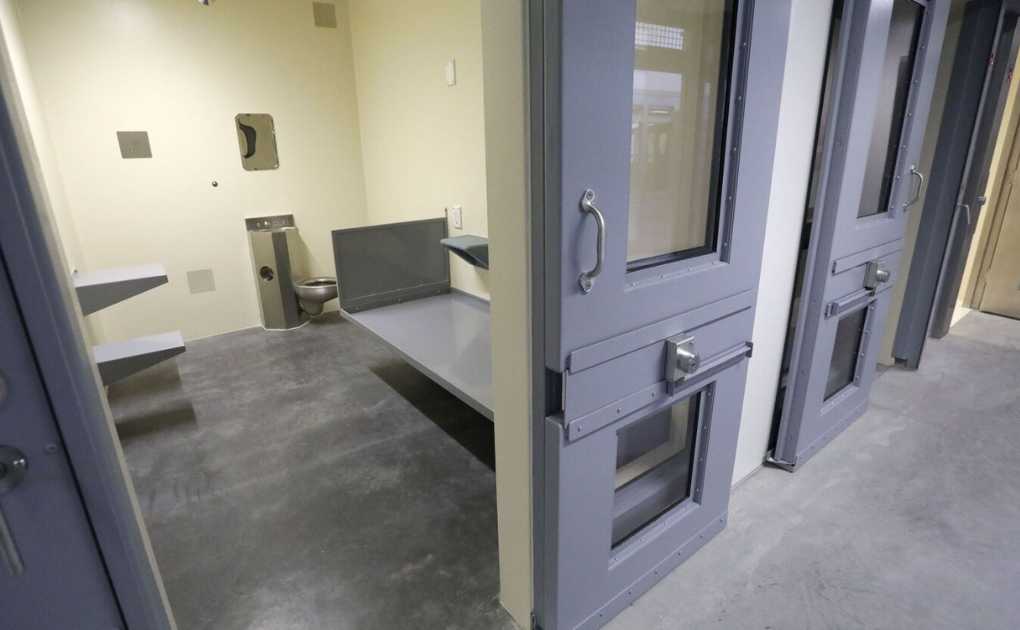
Utah lawmakers discussed a bill Tuesday that would require the Utah Department of Corrections or county jail to assign inmates to housing according to biological sex. The bill was considered with an amendment that would allow transgender people to transfer to housing that corresponds with their gender identity.
Rep. Karianne Lisonbee, R-Clearfield, introduced the bill, HB316.
“Under this bill, an inmate must be assigned housing based on their biological sex at birth,” Lisonbee said. “However, the bill also provides a pathway for granting a transgender inmate’s request be housed with inmates of the opposite biological sex.”
This exception would start with a transgender person making a request. After the request is made, the department would perform “an individualized security analysis” that includes considering the following factors, as the bill states:
- “The transgender inmate’s anatomy as verified by a medical professional.”
- “The physical characteristics of the transgender inmate.”
- “The transgender inmate’s criminal history, including whether the transgender inmate has displayed predatory behavior against individuals whose biological sex at birth do not correspond with the transgender inmate’s biological sex at birth.”
- “The history of the transgender inmate’s behavior while in the department’s custody.”
- “The likelihood of the transgender inmate causing physical or psychological harm to, or committing offenses against, inmates causing physical or psychological harm to, or committing offenses against, inmates in the requested living area whose biological sex at birth do not correspond with the transgender inmate’s biological sex at birth.”
- “The safety of correctional facility if the transgender inmate were to be assigned to the requested living area.”
- “Any other factor determined to be relevant by the executive director.”
The bill would stipulate that the department could assign a transgender person to the requested housing area after this analysis if the assessment shows “a low risk of causing any physical or psychological harm to an inmate who resides in or will reside in the living area, the correctional facility staff that manage the living area, or the transgender inmate.”
When Lisonbee was asked if she could point toward specific cases within Utah’s prison system, she said, “I cannot speak to specific cases because of confidentiality, but I can confirm that our correctional facilities have received this type of request from inmates, including an inmate who has targeted members of the opposite sex in his criminal career.”
Marina Lowe, policy director with Equality Utah, said, “We acknowledge that this is a complicated and challenging task, especially when making determinations about inmate housing. We appreciate the amendment language change, which reflects best practices across the country.”
“We also know that transgender inmates and transgender women, in particular, in prison settings, experience a disproportionately high rate of sexual assault when in prison. And given this fact, we believe that housing assessments should never be solely made based on external anatomy,” Lowe explained, adding that the organization believes a transgender inmate’s own views of their safety should be taken into account.
Dani Palmer, vice president of Utah Eagle Forum, said that the group supported the bill. “The considerations that are outlined in this bill are fair, and they are meant to address the safety of the women in corrections.”
Ellie Menlove, the legislative and policy counsel for the ACLU of Utah, spoke in opposition to the bill “to the extent that the bill departs from the Federal Prison Rape Elimination Act (PREA) standards.”
“We appreciate the amendment proposed by the sponsor that allows the department or sheriffs to seek to assign inmates to housing that aligns with their gender identity without an inmate having to affirmatively make that request,” Menlove said. “However, we worry that inmates may have to wait through what could be a lengthy individualized security analysis in a potentially dangerous housing environment.” Instead, Menlove said the group would like to see the law align with PREA screening guidelines.
In response to using PREA guidelines, Lisonbee said “Utah is not a PREA state, we aren’t requested to follow PREA. But I would push back on the idea that this takes us so far away from PREA.”
After public comment and the committee discussion, the committee voted to favorably recommend the bill, which means it can be read on the floor. Rep. Brian S. King, D-Salt Lake City and Rep. Mark A. Wheatley, D-Salt Lake City both voted against recommending the bill.



